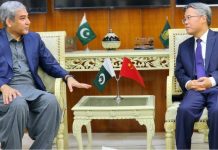Link: Democratic Confederalism – Abdullah Ocalan [Part 1]
3. Bureaucracy and the Nation-State
Since the nation-state transcends its material basis, the citizens, it assumes an existence beyond its political institutions. It needs additional institutions of its own to protect its ideological basis as well as legal, economic and religious structures. The resulting ever-expanding civil and military bureaucracy is expensive and serves only the preservation of the transcendent state itself, which in turn elevates the bureaucracy above the people.
During the European modernity the state had all means at its disposal to expand its bureaucracy into all strata of the society. There it grew like cancer infecting all lifelines of the society. Bureaucracy and nation-state cannot exist without each other. If the nation-state is the backbone of the capitalist modernity it certainly is the cage of the natural society. Its bureaucracy secures the smooth functioning of the system, secures the basis of the production of goods, and secures the profits for the relevant economic actors in both the real-socialist and the business-friendly nation-state. The nation-state domesticates the society in the name of capitalism and alienates the community from its natural foundations. Any analysis meant to localize and solve social problems needs to take a close look at these links.
4. Nation-State and Homogeneity
The nation-state in its original form aimed at the monopolization of all social processes. Diversity and plurality had to be fought, an approach that led into assimilation and genocide. It does not only exploit the ideas and the labour potential of the society and colonize the heads of the people in the name of capitalism. It also assimilates all kinds of spiritual and intellectual ideas and cultures in order to preserve its own existence. It aims at creating a single national culture, a single national identity, and a single unified religious community. Thus it also enforces a homogeneous citizenship. The notion of citizen has been created as a result of the quest for such a homogeneity. The citizenship of modernity
defines nothing but the transition made from private slavery to state slavery. Capitalism can not attain profit in the absence of such modern slave armies. The homogenic national society is the most artificial society to have ever been created and is the result of the “social engineering project”.
These goals are generally accomplished by the use of force or by financial incentives and have often resulted in the physical annihilation of minorities, cultures, or languages or in forced assimilation. The history of the last two centuries is full of examples illustrating the violent attempts at creating a nation that corresponds to the imaginary reality of a true nation-state.
5. Nation-State and Society
It is often said that the nation-state is concerned with the fate of the common people. This is not true. Rather, it is the national governor of the worldwide capitalist system, a vassal of the capitalist modernity which is more deeply entangled in the dominant structures of the capital than we usually tend to assume: It is a colony of the capital. Regardless how nationalist the nationstate may present itself, it serves to the same extent the capitalist processes of exploitation. There is no other explanation for the horrible redistribution wars of the capitalist modernity. Thus the nation-state is not with the common people – it is an enemy of the peoples.
Relations between other nation-states and international monopolies are coordinated by the diplomats of the nation-state. Without the recognition by other nation-states none of them
could survive. The reason can be found in the logic of the worldwide capitalist system. Nation-states which leave the phalanx of the capitalist system will be overtaken by the same fate that the Saddam regime in Iraq experienced or it will be brought to its knees by means of economic embargoes.
Let us now derive some characteristics of the nation-state from the example of the Republic of Turkey.
B. Ideological Foundations of the Nation-State
In the past the history of states was often equated with the history of their rulers, which lent them almost divine qualities. This practice changed with the rise of the nation-state. Now the entire state was idealized and elevated to a divine level.
1. Nationalism
Assuming that we would compare the nation-state to a living god then nationalism would be the correspondent religion. In spite of some seemingly positive elements, nation-state and nationalism show metaphysical characteristics. In this context, capitalist profit and the accumulation of capital appear as categories shrouded in mystery. There is a network of contradictory relations behind these terms that is based on force and exploitation. Their hegemonic strive for power serves the maximization of profits. In this sense, nationalism appears as a quasi-religious justification. Its true mission, however, is its service to the virtually divine nation-state and its ideological vision which pervades all areas of the society. Arts, science, and social awareness: none of them is independent. A true intellectual enlightenment therefore needs a fundamental analysis of these elements of modernity.
2. Positivist Science
The paradigm of a positivist or descriptive science forms another ideological pillar of the nation-state. It fuels nationalist ideology but also laicism which has taken the form of a new religion. On the other hand it is one of the ideological foundations of modernity and its dogmata have influenced the social sciences sustainably. Positivism can be circumscribed as a philosophical approach that is strictly confined to the appearance of things, which it equates with reality itself. Since in positivism appearance is reality, nothing that has no appearance can be part of reality. We know from quantum physics, astronomy, some fields of biology and even the gist of thought itself that reality occurs in worlds that are beyond observable events. The truth, in the relationship between the observed and the observer, has mystified itself to the extent that it no longer fits any physical scale or definition. Positivism denies this and thus, to an extent, resembles the idol worshipping of ancient times, where the idol constitutes the image of reality.
3. Sexism
Another ideological pillar of the nation-state is the sexism that pervades the entire society. Many civilized systems have employed sexism in order to preserve their own power. They enforced women’s exploitation and used them as a valuable reservoir of cheap labour. Women are also regarded as a valuable resource in so far as they produce offspring and provide the reproduction of men. Thus, woman is both a sexual object and a commodity. She is a tool for the preservation of male power and can at best advance to become an accessory of the patriarchal male society.
On the one hand, the sexism of the society of the nation-state strengthens the power of the men; on the other hand the nationstate turns its society into a colony by the exploitation of women. In this respect women can also be regarded as an exploited nation.
In the course of the history of civilization the patriarchy consolidated the traditional framework of hierarchies, which in the nation-state is fuelled by sexism. Socially rooted sexism is just like nationalism an ideological product of the nation-state and of power. Socially rooted sexism is not less dangerous than capitalism. The patriarchy, however, tries to hide these facts at any rate. This is understandable with a view to the fact that all power
relations and state ideologies are fuelled by sexist concepts and behaviour. Without the repression of the women the repression of the entire society is not conceivable. The sexism within the nation-state society while on the one hand gives the male the maximum power on the other hand turns the society through the woman into the worst colony of all. Hence woman is the historical-society’s colony nation which has reached its worst position within the nation-state. All the power and state ideologies stem from sexist attitudes and behaviour. Woman’s slavery is the most profound and disguised social area where all types of slavery, oppression and colonization are realized. Capitalism and nation-state act in full awareness of this. Without woman’s slavery none of the other types of slavery can exist let alone develop. Capitalism and nation-state denote the most institutionalized dominant male. More boldly and openly spoken: capitalism and nation-state are the monopolism of the despotic and exploitative male.
4. Religiousness
Even if it acts seemingly like a secular state, the nation-state does not shy away from using a mélange of nationalism and religion for its purposes. The reason is simple: religion still plays an important part in some societies or parts of them. In particular Islam is very agile in this respect.
However, religion in the age of modernity does no longer play its traditional role. Whether it is a radical of a moderate belief, religion in the nation-state does no longer have a mission in the society. It can only do what it is permitted by the nation-state. Its still existing influence and its functionality, which can be mis- used for the promotion of nationalism, are interesting aspects for the nation-state. In some cases religion even takes on the part of nationalism. The Shi’ah of Iran is one of the most powerful ideological weapons of the Iranian state. In Turkey the Sunni ideology plays a similar but more limited part.
[Continued….]
The texts that form Democratic Confederalism brochure have been compiled from several of Öcalan’s books. Democratic confederalism, also known as Apoism or democratic federalism, is a libertarian socialist political system developed by Abdullah Öcalan based on the ideas of Murray Bookchin. The ideology is closely associated with the polity of Rojava, where it is the governing political system.
The Balochistan Post is publishing the brochure in parts for its readers.






























